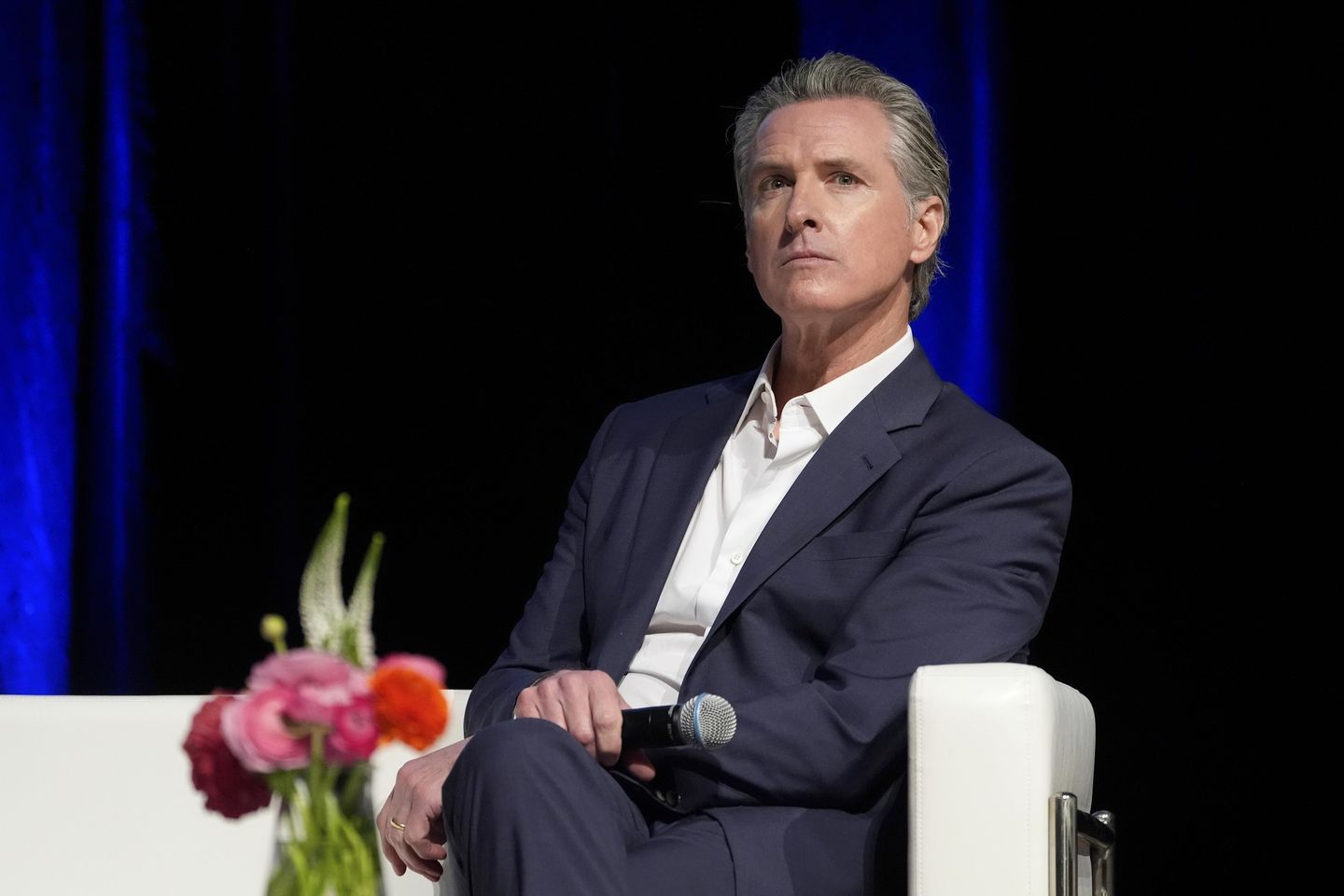
California is suing to stop President Trump’s sweeping tariffs, making it the first state to take the White House to court over its aggressive trade plan.
Gov. Gavin Newsom, a Democrat, and state Attorney General Rob Bonta will argue that Mr. Trump overstepped his authority by using the International Emergency Economic Powers Act to unilaterally impose across-the-board tariffs on other nations.
They say the tariffs will result in crippling costs for California’s massive economy, from Silicon Valley tech businesses to Central Valley farmers.
“President Trump’s unlawful tariffs are wreaking chaos on California families, businesses, and our economy — driving up prices and threatening jobs,” Mr. Newsom said in a statement. “We’re standing up for American families who can’t afford to let the chaos continue.”
The lawsuit, which will be filed in the U.S. District Court for the Northern District of California, is similar to one filed by the Liberty Justice Center on behalf of five small businesses.
That lawsuit says Mr. Trump went around Congress by relying on the 1977 IEEPA law, which allows presidents to impose tariffs in cases of an emergency or national security crisis.
The Constitution grants Congress the “power to lay and collect Taxes, Duties, Imposts and Excises,” though lawmakers have gradually ceded some power to the executive over the past century.
Mr. Trump surprised investors and global leaders with the scope of his “Liberation Day” tariff plan, which imposed a blanket 10% tariff on all imports and higher levies on dozens of the other nations, citing big trade deficits.
He paused the high levies for 90 days but left massive tariffs on China, which responded by imposing a 125% tariff on U.S. goods.
Tariffs are a tax or duty paid by importers on the goods they bring in from foreign markets.
Mr. Trump says tariffs are a great way to force companies to return to America or keep their operations in the U.S., employ American workers and create revenue to fund domestic programs.
Foreign countries don’t pay the tariffs directly to the U.S. Treasury. In many cases, U.S. companies will pay the levies, and they might pass on at least some of the cost to consumers through higher prices.
Earlier this year, the White House imposed 25% tariff on steel and aluminum imports and a 25% tariff on cars not made in the U.S.
Canada and Mexico are still subject to a 25% tariff over the fentanyl crisis, though a range of goods are exempt under the U.S.-Mexico-Canada trade agreement.
The Washington Times reached out to the White House for comment on Mr. Newsom’s planned lawsuit.
Earlier this week, the administration responded to the Liberty Justice Center’s lawsuit by saying that Mr. Trump “is standing up for Main Street by putting an end to our trading partners — especially China — exploiting the U.S.,” and that “his plan levels the playing field for businesses and workers to address our country’s national emergency of chronic trade deficits.”












